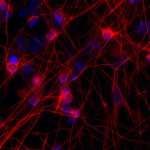Over the past few years, research studies centering on psilocybin, the active ingredient in psychedelic mushrooms, have altogether strengthened the theory on its clinical potential to treat depression and anxiety.
Now, adding to this theory, a new study has found that mindfulness meditation may improve the long-term beneficiary effects associated with psilocybin, according to the findings released in the peer-reviewed journal Scientific Reports.
The findings, as attributed by a group of researchers at the University of Zurich, were determined after a series of experiments on 39 Buddhist meditation experts, which lasted five days. The participants were ordered to undergo mindfulness meditation practices, and on the fourth day, they received either one dose of psilocybin or a placebo.
To assess the effects of psilocybin on mood, researchers issued psychometric and neurocognitive tests.
Upon examining the participants after a four-month double-blind study, researchers concluded that the group who consumed an acute dose of psilocybin saw improved meditative states, resulting in a reduction of anxiety and depressive symptoms, compared to the placebo-controlled group.
“These findings demonstrate that during acute drug effects, experienced meditators were able to remain engaged in their usual meditation practice and that psilocybin has the capacity to deepen meditative states,” wrote Lukasz Smigielski, the study’s co-author.
“Interestingly, dispositional mindfulness measured 1 day after the completion of the retreat was higher among participants who had received psilocybin than among those who had received placebo.”
The results, researchers proclaim, shines a spotlight onto a new perspective of psilocybin and its beneficiary effects on mood.
“Our findings shed light on the interplay between pharmacological and extra-pharmacological factors in psychedelic states of mind,” adds Franz Vollenweider, a researcher at the University of Zurich.
“This opens up new therapeutic avenues, for example for the treatment of depression, which is often accompanied by increased self-focus and social deficits.”


